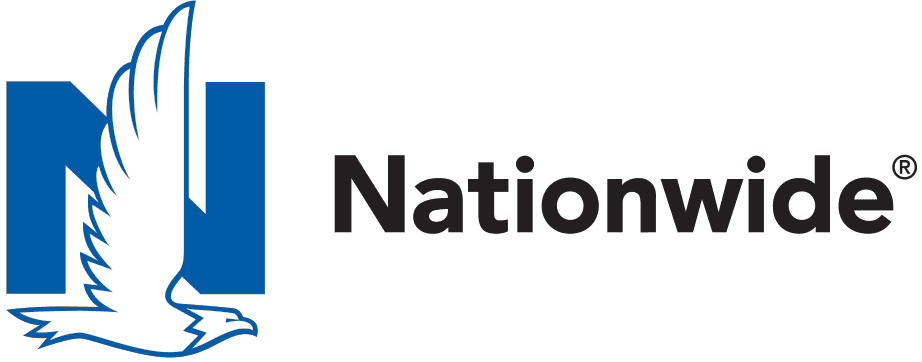
Related Topics
Every day, novel technologies and emerging research are transforming the way we treat and prevent chronic disease. One of the most promising innovations in modern health care is precision health.
Unlike conventional medicine that’s rooted in cookie-cutter treatment approaches, precision health is designed to treat people—not disease. It’s a data-driven strategy that focuses on tailoring illness prevention, early detection, and treatments to the unique individual you are, considering your genes, environment (e.g., the air and water quality where you live), habits, and health history.
If you’re over 50, precision health can be a powerful tool for preserving your independence, vitality, and quality of life. It’s about making smarter, more proactive health decisions that help you stay well and live well as you age.
How does precision health promote healthy aging?
Precision health tools and practices support healthy aging in several ways:
Disease prevention and risk reduction
Fact: As we get older, our odds of developing chronic diseases increase. Nearly 93% of adults 65 and older have at least one chronic condition, while nearly 79% deal with two or more.1 “One of the main goals of precision health is to stop illness before it starts,” explained Kim Scott, Chief Commercial Officer at Kadance. “That’s particularly relevant as we reach middle age and beyond, when the risk of chronic conditions—like cancer, diabetes, and heart disease—tends to rise.”
Here are some precision health tools that facilitate early detection of illness, from cancer and hypertension to inflammatory disease:
- Genetic testing examines your genes to determine if you have an elevated risk for certain diseases, such as breast, colon, or prostate cancer. Having this information early allows you and your health care team to take steps to monitor and manage your health more closely.
- Wearable digital devices—like smartwatches, sleep trackers, and even special clothing—detect subtle changes in your heart rate, body temperature, motion, and oxygen saturation, even if you’re not experiencing any outward symptoms. These tools can alert you and your provider to early signs of trouble, giving you the opportunity to take action before a full-blown illness develops.
- Comprehensive patient assessments that include bloodwork, a physical exam, personal and family medical history, and a conversation about diet, exercise, and sleep habits can yield key insights about your health and risk factors.
For example, heart disease—the leading cause of death for people age 65 and older—can often be prevented by using family health history to guide care. Knowing if a parent or sibling had heart disease, especially at a young age, can help doctors better predict your risk. They can then create a personalized screening and prevention plan to help delay or even stop the onset of heart problems.
More treatment for cancer and other diseases
Precision health doesn’t only help with prevention—it also improves how diseases are treated. This is especially important for older adults, who may already be managing multiple health conditions.
The types of testing below can help your provider choose the right therapies for you:
- Biomarker testing is used to guide treatment decisions for people with cancer. Each person’s cancer has a unique pattern of biomarkers, and some of them may offer clues as to how well certain treatments might work. This allows for more targeted, customized interventions.
- Genomic testing is another tool that helps inform treatments for cancer patients. It can provide valuable information about your cancer, including how fast it may grow and what treatments are likely to work best.
- Pharmacogenomics, a type of testing that looks at how your genes affect your response to medications, helps match you with the right drug and dosage. It usually involves a blood sample or cheek swab. Your provider sends the sample to a lab, where technicians analyze your DNA for specific changes. This approach not only improves treatment results; it reduces the risk of side effects and adverse drug interactions for older adults who may be taking several medications.
By using your personal genetic and health information, your doctors can adapt your treatments to be safer and more effective. This is more favorable than the traditional “trial and error” approach of medicine, which can be frustrating and time-consuming for everyone involved.
Improved health monitoring and early intervention
Continuous health monitoring is vital to managing chronic conditions like diabetes, high blood pressure, and heart disease. Precision health helps make that monitoring more accurate and convenient. Digital devices worn on the body—such as continuous glucose monitors, blood pressure cuffs, and fitness trackers—give early warning signs if something’s off (e.g., your heartbeat has irregular rhythms). They can often be paired with smartphone apps to provide real-time data to you and your health care team.
Home-based health monitoring tools (e.g., blood pressure and glucose monitors and consumer-grade electrocardiographs) work in a similar fashion, allowing you to track your numbers from the comfort of your house. This makes it easier to stay on top of your health without constant visits to the doctor’s office.
With the insights provided by continuous health monitoring, your provider is able to make proactive care adjustments quickly when any changes are detected. This can help prevent a worsening of your condition that could lead to complications or hospitalization.
How does precision health uniquely benefit older adults?
Older adults have distinct health concerns that precision health is well-equipped to address. Here’s how this approach supports healthy aging:
- Promotes longevity and independence: Precision health tools focus on catching problems at an early stage, helping to prevent disease and disability that can stand in the way of a long and active life. Beyond disease prevention, this approach emphasizes long-term health through good nutrition, exercise, and other smart lifestyle habits.
- Offers safer, more targeted treatments: Since age-related changes and frailty have a big impact on treatment outcomes, tailored health care solutions matter for older adults. Precision health factors in any other health conditions you have or medications you may already take to identify the right therapies for you.
- Builds confidence: Precision health helps remove uncertainty around which treatments or lifestyle changes are best for you. In other words, it takes the guesswork out of managing your health from day to day.
What’s another advantage of precision health? It puts you in the driver’s seat of your own health and well-being. By actively participating in decisions about your care, you’re more empowered to age on your terms.
A personal path to aging well
Precision health may be the buzz phrase of the moment, but it’s not just a trend. Rather, it’s a meaningful and proven way to support healthier, more independent living in our later years.
That said, it’s important to be aware of potential limitations. For instance, cost and insurance coverage for precision health services can vary. Some genetic tests and wearable devices may not be fully covered by Medicare or private insurance. Technology barriers can also be a challenge, especially if you're not comfortable using digital tools or mobile health apps.
Here’s the upside: You don’t have to navigate this alone. Ask your health care team about precision health tests and services that may be appropriate for your situation. If you have life insurance from a company like Nationwide, check to see if your policy offers precision health benefits.
Above all, be your own advocate and don’t be afraid to explore all the options available to you. By adding precision health to your health care toolkit, you can help ensure aging well is within your reach.
Source
1. Kathleen B. Watson, PhD, et al. Trends in Multiple Chronic Conditions Among US Adults, By Life Stage, Behavioral Risk Factor Surveillance System, 2013-2023. Preventing Chronic Disease. April 17, 2025. Found on the internet at https://www.cdc.gov/pcd/issues/2025/24_0539.htm




